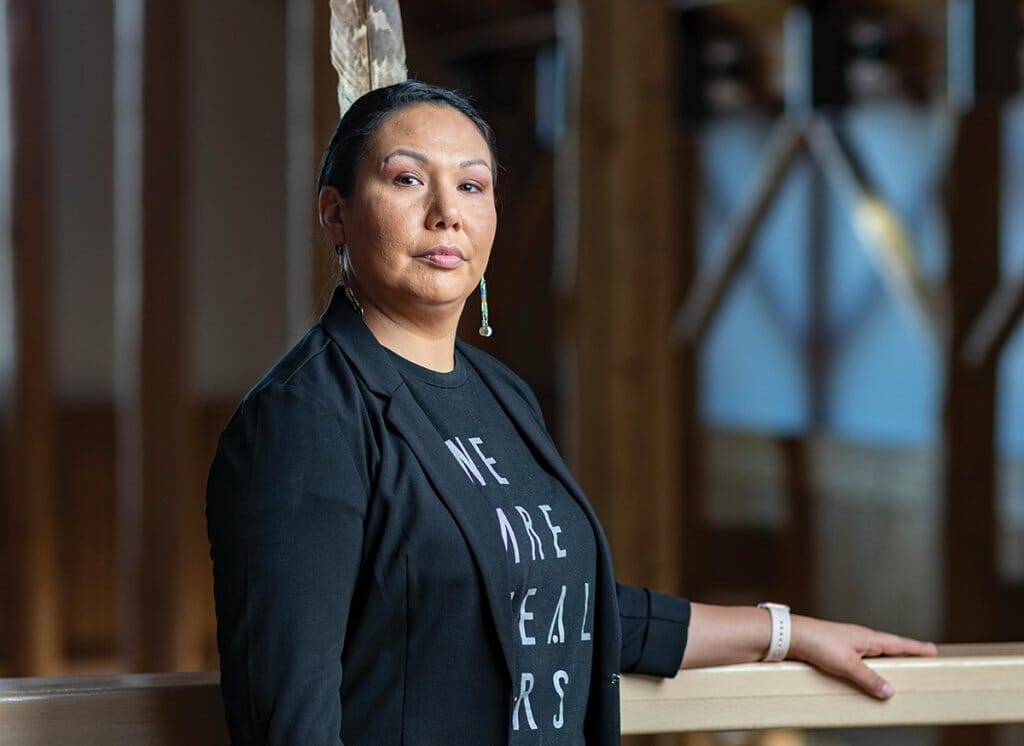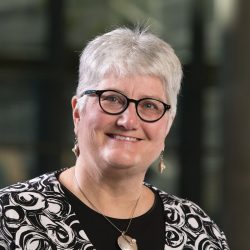Personal Health, National Health Care
Kiana Beaudin ’10, MPAS’15 has devoted her career to her patients as well as the entire Ho-Chunk Nation.

Kiana Beaudin trained as a physician assistant but became the executive director of health for the Ho-Chunk Nation. Andy Manis
Kiana Beaudin ’10, MPAS’15 got into the field of health care because of her father.
“My dad got cancer,” she says. “And I was Daddy’s girl.”
Beaudin grew up in Madison, where her mother was a librarian in the UW’s College Library and her father was on the faculty at UW Law School. He succumbed to cancer when she was just 13, and while he was ill, she accompanied him to appointments, amazed at the technology but more impressed with the professionals who worked so hard to heal him. She considered medical school but decided to focus on becoming a physician assistant rather than an MD. “That was a better fit for me,” she says. “It appealed to me because I would be able to spend more time with my patients than a typical MD would.”
After graduation, she spent a decade in practice before she received a higher calling. In the summer of 2019, Marlon WhiteEagle, the president of the Ho-Chunk Nation, asked Beaudin to take on the role of executive director of health in his administration. She accepted, not out of ambition but obligation.
“It was the way in which he asked me,” she says. “He didn’t say, ‘Oh, hey, do you want to take this position?’ If he had, I’d have said no, I don’t want to do that, because patient care is my passion. I never thought about leadership and policy. But he said, ‘I need you to help. I’m asking you to help our people.’ When he framed it that way, I felt I couldn’t refuse.”
Less than a year after she accepted the role of executive director, the COVID-19 pandemic arrived, upending public health efforts around the world. Beaudin had begun her job with straightforward goals: to cut red tape and encourage more preventive health care. Once COVID arrived, she found herself dealing with the pandemic in many ways. COVID restrictions shut down casinos — a major employer — which led to layoffs and a broader range of health issues. But though her work is vital, she intends to step down in July 2023. She misses the personal contact.
Being in a clinic, she says, “felt carefree. I’m looking forward to going back.”
Published in the Winter 2022 issue


Comments
No comments posted yet.